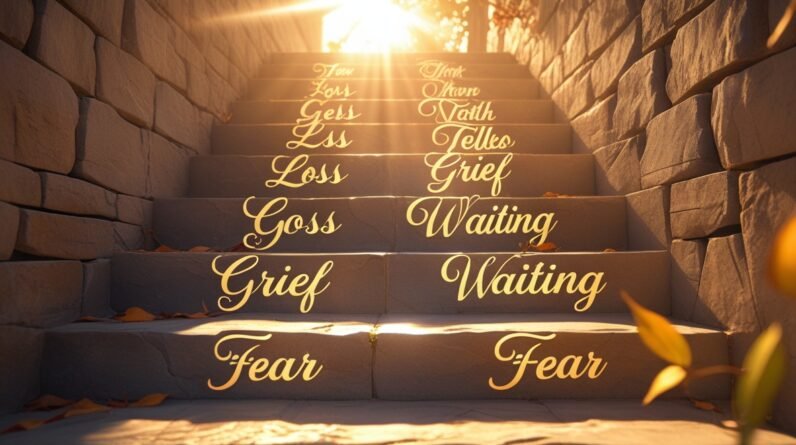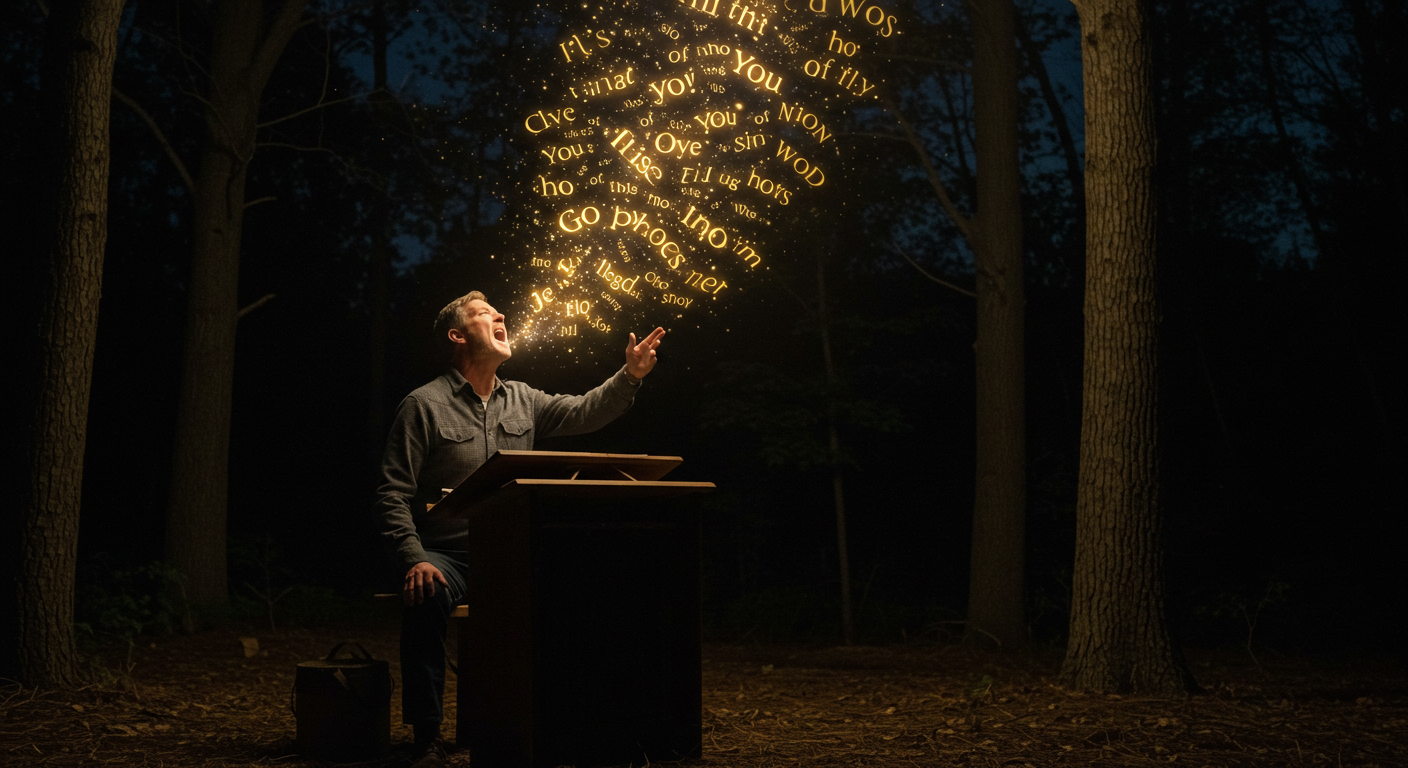Explore Hebrews 11:1’s profound insights on faith’s essence and learn to trust the unseen with resilience. Dive into spiritual journeys and life’s transformative power.
Hebrews 11:1 and the Essence of Faith: Trusting in the Unseen
Faith, at its core, is an intrinsic part of human existence that reaches beyond the tangible and connects us with the divine. This spiritual journey often begins with a single concept—faith. Hebrews 11:1 offers a profound insight: “Now faith is the substance of things hoped for, the evidence of things not seen.” Let’s unravel this verse and explore the essence of faith and trusting in the unseen, guided by a friendly and engaging tone.
Understanding Hebrews 11:1
Hebrews 11:1 provides a fundamental definition of faith, presenting it as both a substance and evidence. These words transform faith from an abstract belief into something substantial. By describing faith as “the substance of things hoped for,” the verse suggests that faith is the very core or essence of our aspirations and desires. It is the underlying conviction that gives life and form to our hopes. Similarly, faith as “the evidence of things not seen” highlights its role as proof or conviction of realities we cannot physically perceive. This dual definition emphasizes faith as both a grounding force for our hopes and a bridge to the unseen spiritual realm.
Faith as Substance
The concept of faith as a substance indicates that it is not merely wishful thinking or blind optimism. Instead, faith provides a solid foundation upon which hopes are built. This substance signifies assurance, a fundamental confidence in what we expect to happen even if we cannot yet observe it. In our everyday lives, faith anchors our dreams and ambitions, giving them shape and context, and allowing us to persevere through uncertainty.
Faith as Evidence
Faith as evidence delves into the conviction aspect, asserting that what cannot be seen still holds truth and reality. This perspective requires a belief in more than what our senses can confirm. For many, faith becomes the inner assurance that the invisible truths of spiritual and moral values are as real as the physical world. This belief enables us to live in confidence and act on principles that transcend empirical evidence, thereby cultivating a deeper trust in God’s promises.
The Power of Faith
Harnessing the power of faith allows us to navigate life’s complexities with resilience and grace. When we trust the unseen, we open ourselves up to transformation and miracles that logic alone cannot explain. By emphasizing faith’s power, you can discover how it influences your outlook, guides your decisions, and strengthens your spirit.
Transformational Impact
Faith has a transformative power that not only shifts perspectives but also molds character and destiny. It can inspire monumental leaps of courage, foster unyielding hope amidst adversity, and nurture compassion in the face of conflict. When faith is transformative, it catalyzes personal growth and encourages you to transcend limitations. By trusting in the unseen, you give room for personal and spiritual evolution that enriches life’s journey.
Resilience in Trials
Faith provides resilience during life’s trials, serving as a beacon of hope when circumstances appear insurmountable. It equips you with the strength to endure hardships, trusting that there is a greater plan at work. This resilience is a product of believing that even in the darkest times, you are not alone, and that strength and guidance can be found in the spiritual realm. Through faith, you gain the perseverance needed to face challenges with courage and resolve.
Trust in the Unseen God
Trusting in God, whom you cannot see, marks the epitome of faith. It requires surrender and a recognition of a higher power orchestrating life’s events. This trust is not passive; it is an active, dynamic relationship that requires commitment and openness to divine guidance.
Developing a Personal Relationship with God
Cultivating a personal relationship with God involves commitment, communication, and trust. It’s akin to nurturing any meaningful relationship but on a spiritual plane. Prayer, meditation, and reading scripture offer avenues to build this connection, allowing you to listen and be receptive to God’s guidance. By fostering this relationship, you deepen your faith and reinforce trust in God’s unseen hand in your life.
Surrender and Acceptance
Trusting in the unseen calls for surrender—releasing the need for control and embracing God’s will. This can be challenging, especially in a world that often values certainty and predictability. Yet, surrender opens you to acceptance and peace, recognizing that there is a benevolent force greater than yourself at work. Embracing surrender allows you to experience freedom from anxiety and an abiding trust in the divine orchestration of your life’s events.

Faith and the Material World
Balancing faith with day-to-day reality can be challenging. The tangible demands of the material world often seem at odds with spiritual beliefs. However, integrating faith into daily life enriches your experience and provides a balanced perspective that enhances your relationship with both the seen and unseen.
Integrating Faith into Daily Life
Incorporating faith into everyday life transforms mundane activities into meaningful experiences. This integration is not about escaping reality but infusing your daily routine with purpose and direction rooted in spiritual conviction. By approaching tasks with gratitude, acting with kindness, and making decisions guided by moral values, you weave faith into the fabric of your existence, enriching both the ordinary and extraordinary moments.
Overcoming Doubt
Doubt is a natural component of faith, catalyzing deeper understanding and growth. Instead of shunning doubt, embracing it as an opportunity to explore and strengthen your beliefs can be liberating. Engaging with doubt encourages inquiry and reflection, ultimately reinforcing your trust in the unseen. It is through overcoming doubt that faith can become more resilient and dynamic, capable of adapting to life’s intricacies.
Historical and Scriptural Examples of Faith
Throughout history and scripture, countless examples illustrate the profound impact of faith in action. These stories serve as guides, offering lessons in trust, perseverance, and the boundless potential of believing in the unseen.
Faith in Biblical Narratives
The Bible is replete with narratives that highlight unwavering faith. From Abraham’s journey into the unknown guided solely by promise, to Moses leading a nation with divine purpose, these stories underscore the essence of trusting in God. Such accounts demonstrate the power of faith to propel individuals forward, despite uncertainty or apparent impossibility, offering timeless inspiration for your own journey.
Faith in Modern Context
In modern times, faith continues to shape lives, communities, and cultures, inspiring acts of kindness, resilience, and social change. It empowers people to endure hardships and overcome barriers, driven by the belief in a higher good and purpose. Observing faith’s role in the contemporary world highlights its relevance and reinforces the idea that trusting in the unseen is as vital today as it was in ancient times.
The Benefits of Trusting in the Unseen
Embracing faith yields profound benefits, influencing mental, emotional, and spiritual well-being. By trusting in the unseen, you unlock a reservoir of hope, grounding, and peace that transcends circumstances.
Spiritual Growth and Enlightenment
Faith cultivates spiritual growth, inviting you to explore deeper layers of meaning and connection with the divine. This exploration fosters enlightenment, a deeper understanding of your place within the grand scheme of life. As you deepen your faith, you expand your awareness and wisdom, opening the door to more profound spiritual experiences.
Inner Peace and Fulfillment
Trusting in the unseen brings a feeling of inner peace and fulfillment that material achievements alone cannot provide. This peace stems from a confident assurance in divine providence and an acceptance of life’s uncertainties. With inner peace, you find contentment, balance, and joy in both the challenges and blessings of life.
Nurturing Faith in Everyday Life
Nurturing faith requires intentional effort and devotion. It involves habits that reinforce your belief and commitment to trusting in the unseen.
Practices to Strengthen Faith
Engaging in daily practices helps fortify faith and build a robust spiritual foundation. Consider incorporating the following into your routine:
- Prayer and Meditation: Carve out time each day for prayer or meditation to connect with the divine and center your spirit.
- Reading Scripture: Regularly read sacred texts to find guidance and inspiration, letting the stories and lessons reinforce your understanding of faith.
- Community Fellowship: Join a faith community to share experiences, gain support, and celebrate collective faith journeys.
- Service and Acts of Kindness: Engage in acts of kindness and service, allowing your faith to manifest through love and compassion for others.
Reflective Journaling
Journaling provides a personal space to reflect on your faith journey. Writing about experiences, doubts, and insights helps articulate your thoughts and deepen your understanding of faith’s role in your life. Reflective journaling becomes a tool for spiritual introspection, helping you track growth and transformation over time.
Overcoming Challenges to Faith
Challenges to faith are inevitable and can arise from external pressures or internal conflicts. Facing these challenges head-on fortifies your trust in the unseen, encouraging resilience and steadfastness.
Dealing with Adversity
In times of adversity, maintaining faith can be difficult. It is crucial to remember that challenges often serve as opportunities for growth and greater reliance on the divine. Seek support from your community or spiritual mentors, and lean into prayer and reflection to bolster your faith during trying times.
Reconciling Faith and Reason
Reconciling faith with reason can sometimes be a source of tension. It is essential to understand that faith and reason are not mutually exclusive but can complement each other in enriching your worldview. Explore philosophical and theological perspectives that harmonize the two, allowing for a more nuanced and comprehensive understanding of your beliefs.
Conclusion: Embracing Faith’s Journey
The essence of faith—the substance of hopes and evidence of the unseen—invites you on a journey of trust, transformation, and profound connection with the divine. By embracing faith, you open yourself to a rich tapestry of experiences that both challenge and uplift. May your journey be filled with resilience, enlightenment, and peace as you navigate the seen and unseen with a heart full of trust and hope.







